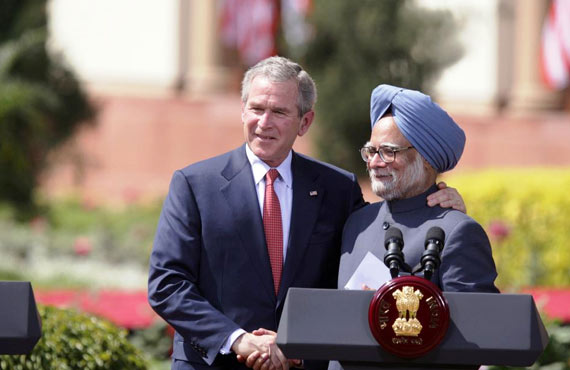Analyzing the India-US Civil Nuclear Deal

The India-US Civil Nuclear Deal, with its transformative energy and geopolitical implications, demands joint efforts to overcome challenges, fostering collaboration and enhancing the strategic partnership amid growing global clean energy priorities.
The Indian-US civil nuclear deal, signed in 2008, was hailed as a landmark agreement that defined a significant shift in the relationship between the two nations. The deal aimed to end India’s nuclear isolation by granting it access to the global nuclear market in exchange for separating its civil and military nuclear facilities.
Provisions of the Deal
The India-US civil nuclear deal was significant for various reasons such as it granted India access to international nuclear fuel and technology markets, paving the way for the expansion of its civilian nuclear program. The agreement required India to separate its civil and military nuclear facilities, with only the former being open to international inspections by the International Atomic Energy Agency (IAEA). In return, the Nuclear Suppliers Group (NSG) granted a waiver to India, allowing it to engage in nuclear commerce.
Untapped Potential
The construction of nuclear power plants and the import of technology have faced delays, hindering India's efforts to meet its growing energy demands. Moreover, issues related to liability and concerns about the compatibility of India's nuclear liability law with international standards have impeded foreign investment in the sector.
Another factor limiting the deal's impact has been the cautious approach of American companies. Despite the agreement opening doors for US firms in the Indian nuclear market, their participation has been limited. Concerns over India's liability laws and the perceived complexity of doing business in the country have led to hesitancy among potential investors. Overcoming these challenges is crucial to unlocking the deal's full economic and energy potential.
Geopolitical Implications
The Indian-US civil nuclear deal was merely an energy agreement with broader geopolitical implications. It signed a shift in the US approach towards India, recognizing it as a key regional strategic partner. However, for these geopolitical gains to be fully realized, it is essential for the economic aspects of the agreement to be effectively implemented.
A multi-faceted approach is required to harness the untapped potential of the India-US Civil Nuclear Deal. Initially, addressing the implementation challenges and expediting the construction of nuclear power plants is imperative. This involves streamlining bureaucratic processes, ensuring compliance with international standards, and creating a conducive environment for foreign investment.
Secondly, addressing concerns related to liability is crucial. The Indian government need to revisit its nuclear liability laws to provide greater assurance to international companies. Creating a framework that balances the interests of all stakeholders, including the government, industry, and the public, is essential for building trust and attracting foreign investment.
Enhancing collaborations between Indian and American Companies is vital. Joint ventures and technology transfer facilitate the transfer of knowledge and expertise, fostering a mutually beneficial relationship. The US, in turn, actively encourages its companies to seize the opportunities presented by the Indian market.
The Indian-US civil nuclear deal holds immense potential to shape the region's energy landscape and geopolitical dynamics. Realizing this potential required a concerted effort from both nations to overcome implementation challenges and foster a conducive environment for collaboration. As the global focus on clean energy intensifies, leveraging the benefits of nuclear power becomes even more critical. The untapped potential of the civil nuclear deal represents an opportunity for India and the US to strengthen their strategic partnership while addressing pressing energy needs.
